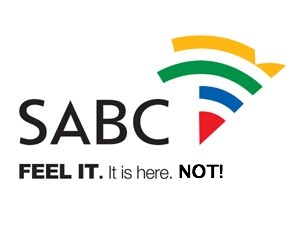
As I sat in front of the box a few minutes ago to enjoy the Battle of Freetown — a crucial 2012 Afcon qualifier between Sierra Leone and South Africa — national broadcaster SABC told us that it was not showing the match. According to news reports, ‘It had emerged on Friday that the SABC had not yet made plans to ensure the game in Freetown would be televised’. 49 million Bafana fans are enraged. Betrayed by a public broadcaster that legally forces South Africans to pay annual fees for pathetic programming and a multibillion rand debt.
Update: SAFA CEO Leslie Sedibe revealed that “For the Sierra Leone away fixture we offered SABC space in the chartered flight and we were unfortunately informed that their crew’s visas were not ready by the time the team departed for Freetown on Friday morning.” Read the story here.
Categories
4 replies on “South Africans Betrayed: Public Broadcaster Fails to Show National Team Match”
Shocking that the national game is treated with such disdain by the SABC. Especially since the current Bafana TV contract stipulates that SAFA must pay the public broadcaster’s production costs for all national team games!
See Daily Dispatch article reported here:
http://www.kickoff.com/news/18052/safa-wants-more-cash-from-sabc.php
I never thought that this could happen in South Africa. Many other African countries don’t show their road games. The cost is prohibitive for many public televisions.
SABC and SAFA are both to blame in this case. SAFA signed a bad contract in 2005. Paying for production cost sounds like amateurs seeking for local TV coverage of their event.
But overall this dispute reveals the limitations of the big Europeans leagues and FIFA broadcasting rights model.
This quote from Safa boss “Our highest revenue must come from broadcasting.” is symptomatic of the mimetism suggested by the European and FIFA model.
Trust with cost and revenue sharing between national federations and public broadcasters may be the option to keep Bafana Bafana’s games free on air.
Gerard, I completely agree with you that the Big 5/FIFA broadcasting rights model is hugely problematic. However, the Freetown debacle strongly suggests that SABC is beyond repair. As a letter in yesterday’s Sunday Times (Joburg) put it, the national broadcaster should be razed to the ground and start from scratch. Then, and only then, can we begin to think about workable alternatives to the Big 5/FIFA broadcasting rights model.
A year and a half later, more of the same:
“SABC gives fans the middle finger”
http://www.kickoff.com/news/26566/sabc-showing-eight-africa-cup-of-nations-matches-live.php
Posted: 2012-01-19 13:37 on kickoff.com
Until . . . SABC signed a new 3-year deal with South Africa’s national teams in May 2012. Read article here:
http://www.kickoff.com/news/28431/sabc-commit-to-bafana-with-new-sports-channel.php